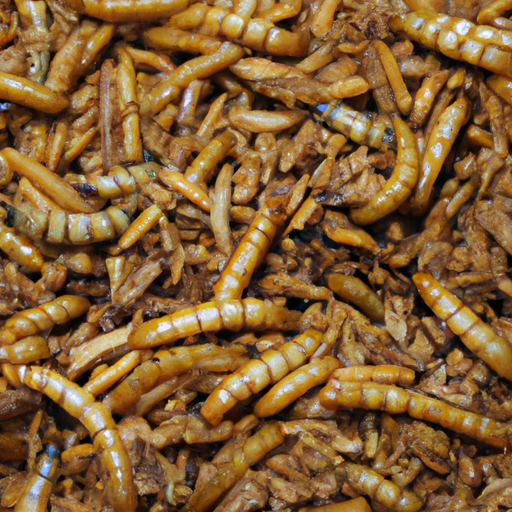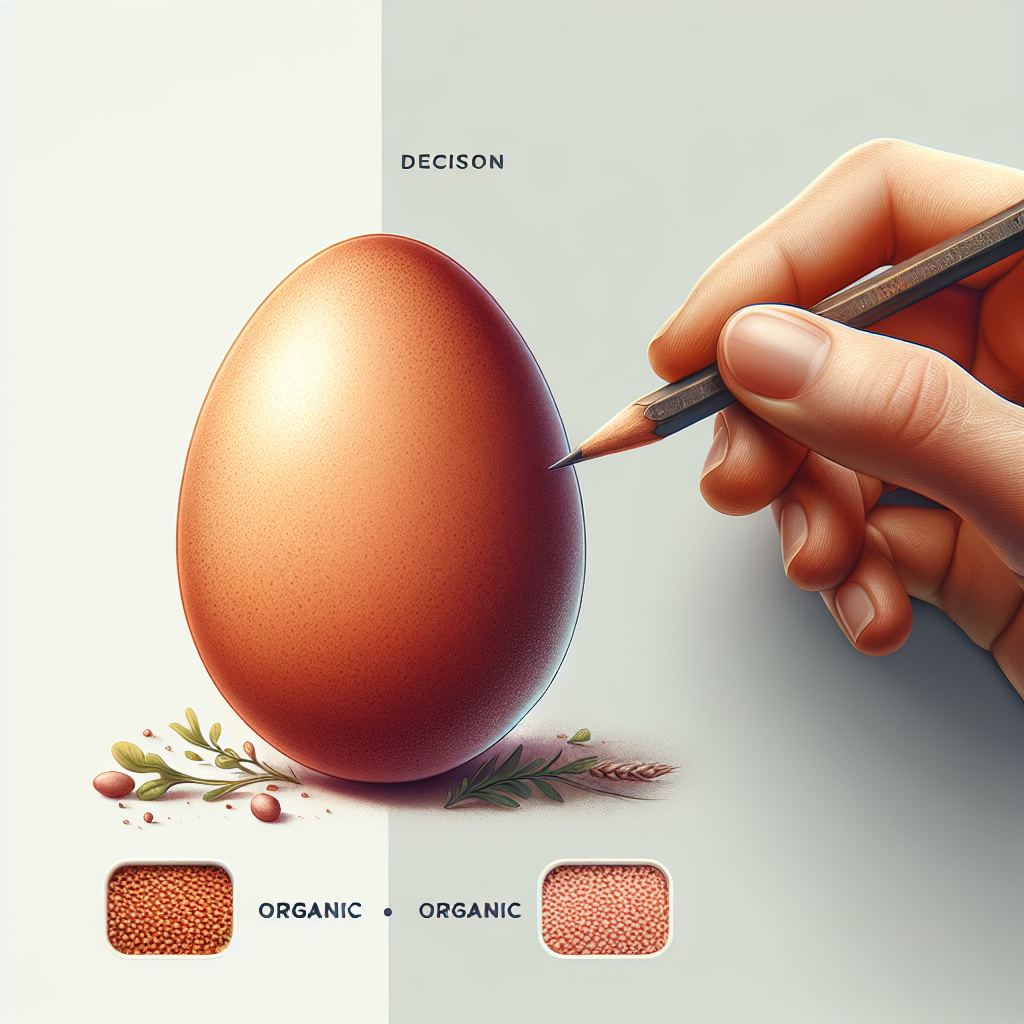Interested in providing your chickens with a balanced diet without emptying your wallet? Look no further! In this article, we will explore some simple yet effective ways to ensure your feathered friends receive all the essential nutrients they need, without the hefty price tag. From incorporating nutritious scraps and foraging opportunities into their diet to exploring affordable feed options, you’ll discover practical tips that will keep both your chickens and your budget satisfied. So, let’s roll up our sleeves and dig into the world of budget-friendly chicken nutrition!
Planning a Balanced Diet for Chickens
Understanding Chicken Nutritional Needs
When it comes to planning a balanced diet for your chickens, it is important to have a good understanding of their nutritional needs. Chickens require a variety of essential nutrients to thrive, including protein, carbohydrates, vitamins, minerals, fiber, and calcium. By ensuring that their diet contains the right balance of these nutrients, you can help keep your chickens healthy and happy.
Identifying Essential Nutrients
Protein is a crucial component of a chicken’s diet as it plays a vital role in growth, feather production, and egg development. Chickens require a sufficient amount of protein to meet their daily needs. Additionally, carbohydrates provide chickens with energy to carry out their daily activities. It is important to include a good source of carbohydrates in their diet.
Vitamins and minerals are also essential for the overall health of chickens. They play a vital role in various bodily functions and help prevent deficiencies and diseases. Fiber helps with digestion and keeps the digestive system healthy, while calcium is necessary for strong bones and eggshell production.
Determining Daily Caloric Requirements
To ensure a balanced diet for your chickens, it is important to determine their daily caloric requirements. The number of calories a chicken needs depends on various factors, including their age, size, activity level, and environmental conditions. Consulting with a poultry nutritionist or veterinarian can help you accurately determine the daily caloric requirements of your chickens.
Protein Sources for Chickens
The Importance of Protein in a Chicken’s Diet
Protein is an essential nutrient for chickens, and it plays a crucial role in their growth, feather production, and egg development. A deficiency in protein can lead to stunted growth, poor feather quality, and reduced egg production. It is important to ensure that your chickens receive an adequate amount of protein in their diet.
Choosing Cost-Effective Protein Sources
When choosing protein sources for your chickens, it is important to consider cost-effectiveness. While there are commercially available protein-rich chicken feeds, they can be expensive. However, there are more affordable options for providing protein to your chickens.
One cost-effective protein source is dried mealworms. Mealworms are a rich source of protein and can be purchased in bulk at a lower cost compared to commercial chicken feeds. You can also consider using kitchen scraps such as eggshells, meat scraps, and yogurt as protein sources.
Examples of Protein-Rich Foods
There are several protein-rich food options that you can provide to your chickens. These include:
- Mealworms: A great source of protein and a favorite treat for chickens.
- Fish meal: Fish meal is a high-protein feed ingredient that can be added to their diet.
- Soybean meal: Soybean meal is a commonly used protein source in chicken feed.
- Peas: Peas are a nutritious and protein-packed vegetable that can be added to their diet.
Carbohydrate and Energy Sources
Balancing Carbohydrates in Chicken Feed
Carbohydrates are an important source of energy for chickens. They provide the necessary fuel for their daily activities and help support their overall health and well-being. When planning a balanced diet for your chickens, it is crucial to ensure a proper balance of carbohydrates in their feed.
Affordable Carbohydrate Sources
When considering affordable carbohydrate sources for your chickens, grains are a cost-effective option. Corn, wheat, barley, and oats are commonly used grains that provide a good source of carbohydrates for chickens. You can also consider adding rice or pasta to their diet, as these are inexpensive carbohydrate sources.
Providing Sufficient Energy for Chickens
To ensure that your chickens receive sufficient energy, it is important to provide them with the right combination of carbohydrates and fats. Fats are a concentrated source of energy and can be included in their diet in moderation. Vegetable oils, such as corn oil or soybean oil, can be added to their feed to help increase their energy intake.
Vitamins and Minerals
Understanding the Role of Vitamins and Minerals
Vitamins and minerals play a crucial role in the overall health and well-being of chickens. They help support various bodily functions and are essential for optimal growth, development, and disease prevention. While commercial chicken feeds are often fortified with vitamins and minerals, there are affordable options for providing these nutrients to your chickens.
Affordable Sources of Vitamins and Minerals
When looking for affordable sources of vitamins and minerals, consider offering your chickens a diverse range of fruits and vegetables. These can include kitchen scraps such as carrot tops, lettuce leaves, and apple cores. Feeding your chickens leftover fruits and vegetables can not only provide them with essential vitamins and minerals but also help reduce food waste.
Meeting Chickens’ Vitamin Requirements
To ensure that your chickens are receiving all the necessary vitamins, you can also consider adding supplements to their diet. Vitamin supplements specifically formulated for chickens can be an affordable option to meet their vitamin requirements. However, it is important to consult with a poultry nutritionist or veterinarian before adding any supplements to their diet.
Fiber and Grit
The Benefits of Fiber in a Chicken’s Diet
Fiber is an essential component of a chicken’s diet as it aids in digestion and promotes a healthy digestive system. It helps prevent digestive issues such as impacted crops or sour crop and facilitates the movement of food through the digestive tract. Including an adequate amount of fiber in your chickens’ diet can help maintain their digestive health.
Cost-Effective Sources of Fiber
There are several cost-effective sources of fiber that you can provide to your chickens. One option is to include hay or straw in their coop or run, allowing them to peck and scratch at it. This not only provides fiber but also provides enrichment for the chickens. Additionally, kitchen scraps such as carrot peels and broccoli stalks can be given to your chickens as a source of fiber.
Importance of Grit for Proper Digestion
In addition to fiber, chickens also require grit for proper digestion. Grit consists of small, rough particles that chickens swallow and store in their gizzards. It helps break down food and aids in the grinding process in the gizzard. Insufficient grit can lead to digestive issues and poor nutrient absorption. You can provide grit to your chickens by offering crushed oyster shells or purchasing commercially available poultry grit.
Calcium and Shell Health
Why Calcium is Crucial for Chickens
Calcium is a vital nutrient for chickens, especially for laying hens. It is necessary for the development of strong bones, feather growth, and the production of healthy eggshells. Calcium deficiency can lead to weak eggshells, bone disorders, and reduced egg production. Ensuring an adequate supply of calcium is essential for the overall health and productivity of your chickens.
Inexpensive Sources of Calcium
There are several inexpensive sources of calcium that you can provide to your chickens. One option is to offer crushed oyster shells, which are readily available and can be purchased in bulk. Another option is to provide eggshells from your own kitchen. Simply crush the eggshells into small pieces and offer them to your chickens as a calcium supplement.
Ensuring Strong and Healthy Egg Shells
To support the production of strong and healthy eggshells, it is important to provide your chickens with a sufficient amount of calcium. This can be done by incorporating the aforementioned inexpensive calcium sources into their diet. Additionally, ensuring that your chickens have access to clean water at all times is crucial as dehydration can affect eggshell quality.
Providing Fresh Greens
Including Leafy Greens in the Diet
Fresh greens play an essential role in providing a balanced diet for chickens. They are a great source of vitamins, minerals, and antioxidants. Including leafy greens in your chickens’ diet can help promote their overall health and boost their immune system. Additionally, the act of pecking at greens can provide mental stimulation for your chickens.
Budget-Friendly Greens for Chickens
There are several budget-friendly greens that you can offer to your chickens. Some options include lettuce, kale, cabbage, spinach, and Swiss chard. These greens can often be found at affordable prices in your local grocery store or purchased in bulk. You can also consider growing your own greens in a small garden or pots to save costs.
Promoting Optimal Health with Greens
Including fresh greens in your chickens’ diet not only provides them with essential nutrients but also helps diversify their diet. Just like humans, chickens benefit from a varied diet, and offering a mix of different greens can help promote optimal health. Experiment with different greens to see which ones your chickens enjoy the most.
The Role of Supplements
Understanding the Purpose of Supplements
Supplements can play a role in ensuring that your chickens receive all the necessary nutrients in their diet. They are designed to fill any nutritional gaps that may exist, particularly if your chickens are not receiving a well-balanced diet. However, it is important to remember that supplements should not replace a balanced diet but rather complement it.
Choosing Affordably Priced Supplements
When choosing supplements for your chickens, it is important to consider their affordability. There are various affordable supplements available specifically formulated for chickens. These can include vitamin and mineral supplements, probiotics, and omega-3 fatty acid supplements. Consulting with a poultry nutritionist or veterinarian can help you choose the most suitable and cost-effective supplements for your chickens.
Supplementing Wisely for Optimum Results
Supplements should be used judiciously and in accordance with your chickens’ specific needs. It is important to follow the recommended dosage and consult with a poultry nutritionist or veterinarian if you are unsure. Additionally, it is always preferable to prioritize a balanced and varied diet before relying solely on supplements. Proper supplementation, combined with a well-planned diet, can help optimize your chickens’ health and well-being.
Optimizing Food Waste as Chicken Feed
Reducing Food Waste by Feeding Chickens
Feeding your chickens with food waste is not only a sustainable practice but also a cost-effective way to provide them with a varied diet. Chickens can consume a wide range of kitchen scraps, reducing the amount of food waste that ends up in the landfill. By feeding them food waste, you are also contributing to the circular economy and minimizing your environmental impact.
Safe and Beneficial Food Waste for Chickens
While chickens can consume various food scraps, it is important to avoid giving them anything that may be toxic or harmful to their health. Avoid feeding them spoiled or moldy food, as it can lead to digestive issues. Safe and beneficial food waste for chickens can include vegetable peels, fruit scraps, bread, and cooked rice or pasta. However, it is important to avoid excessive amounts of sugary or salty foods.
Managing Food Waste to Save Costs
Feeding your chickens with food waste can also help you save costs. By utilizing leftovers and scraps, you can reduce the amount of commercial chicken feed you need to purchase. This can be particularly beneficial if you have a larger flock of chickens. However, it is important to ensure that food waste is provided in moderation and does not replace the essential nutrients in their diet.
Feeding Strategies on a Budget
Creating a Feeding Schedule
Developing a feeding schedule can help you budget and plan your chickens’ diet effectively. By establishing set feeding times and portion control, you can ensure that your chickens are receiving the right amount of food without unnecessary waste. This also allows you to monitor their feed intake and detect any changes in their appetite or health.
Batch Cooking Feed for Cost Efficiency
Batch cooking feed can be an efficient way to save costs and ensure a balanced diet for your chickens. By preparing larger quantities of feed at once, you can utilize economical ingredients and minimize food waste. This method allows you to mix and match different ingredients to create a well-balanced and cost-effective feed for your chickens.
Feeding Strategies to Minimize Waste
To minimize waste, it is important to provide your chickens with only the amount of food they can consume within a specific time frame. For example, using a gravity feeder or a hanging feeder can help prevent them from wasting food by scattering it around. Additionally, regularly checking their feeding areas for uneaten or spoiled food can help reduce waste and ensure a fresh and clean food supply.
In conclusion, planning a balanced diet for chickens can be achieved without breaking the bank. Understanding their nutritional needs, choosing cost-effective protein and carbohydrate sources, providing essential vitamins and minerals, and incorporating fiber, grit, calcium, fresh greens, and supplements can help ensure the health and well-being of your chickens. By optimizing food waste as chicken feed and implementing feeding strategies on a budget, you can not only save costs but also contribute to sustainable practices. With careful planning and consideration, you can provide your chickens with a well-balanced diet that meets their nutritional requirements and keeps them happy and thriving.




